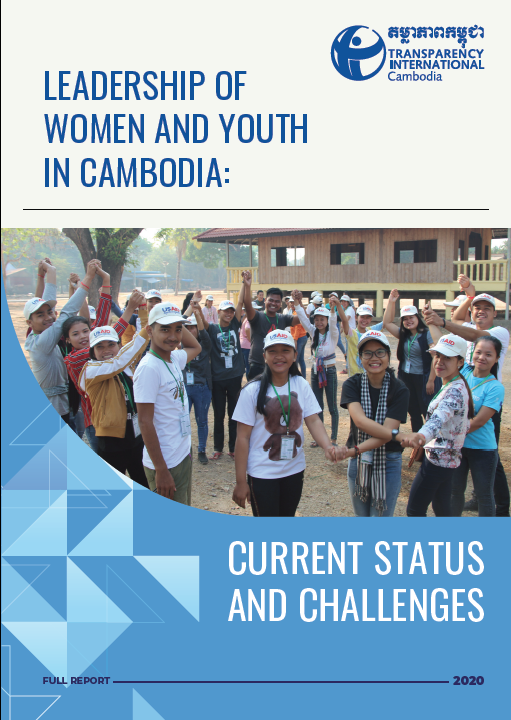
Full Report on Leadership of Women and Youth in Cambodia: Current Status and Challenges
Publication Year: 2020 / Sources: Transparency International CambodiaThis study aimed to: a) document recent trends in women and youth leadership in Cambodia, b) identify the progress and challenges in creating an enabling environment for youth and women to effectively participate in the decision-making process and c) create concrete recommendations to the Government’s institutions, Civil Society Organisations (CSOs)/ networks, and academics (schools) to effectively promote women and youth in leadership positions for the improvement of the democratic system in Cambodia.
Download: English | Khmer
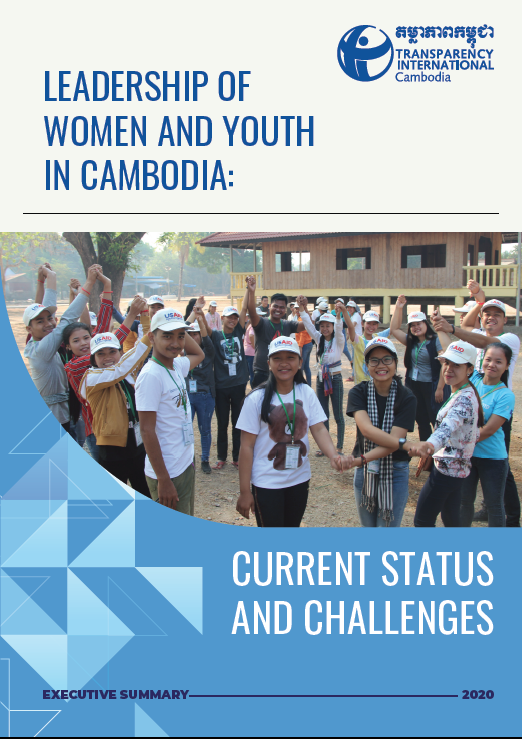
Summary report on Leadership of Women and Youth in Cambodia
Publication Year: 2020 / Sources: Transparency International CambodiaThe main objectives of the study were to:
(1) Document the recent trends in women’s and youth’s leadership in Cambodia,
(2) Identify the progress and challenges in creating an enabling environment for youth and women to effectively participate in the decision-making processes, and
(3) Create concrete recommendations for the Government, CSOs/networks, and academics (schools) to effectively promote youth and women in leadership positions for the improvement of the democratic system in Cambodia.

Full report on Leadership of Women and Youth in Cambodia
Publication Year: 2020 / Sources: Transparency International CambodiaThe main objectives of the study were to:
(1) Document the recent trends in women’s and youth’s leadership in Cambodia,
(2) Identify the progress and challenges in creating an enabling environment for youth and women to effectively participate in the decision-making processes, and
(3) Create concrete recommendations for the Government, CSOs/networks, and academics (schools) to effectively promote youth and women in leadership positions for the improvement of the democratic system in Cambodia.
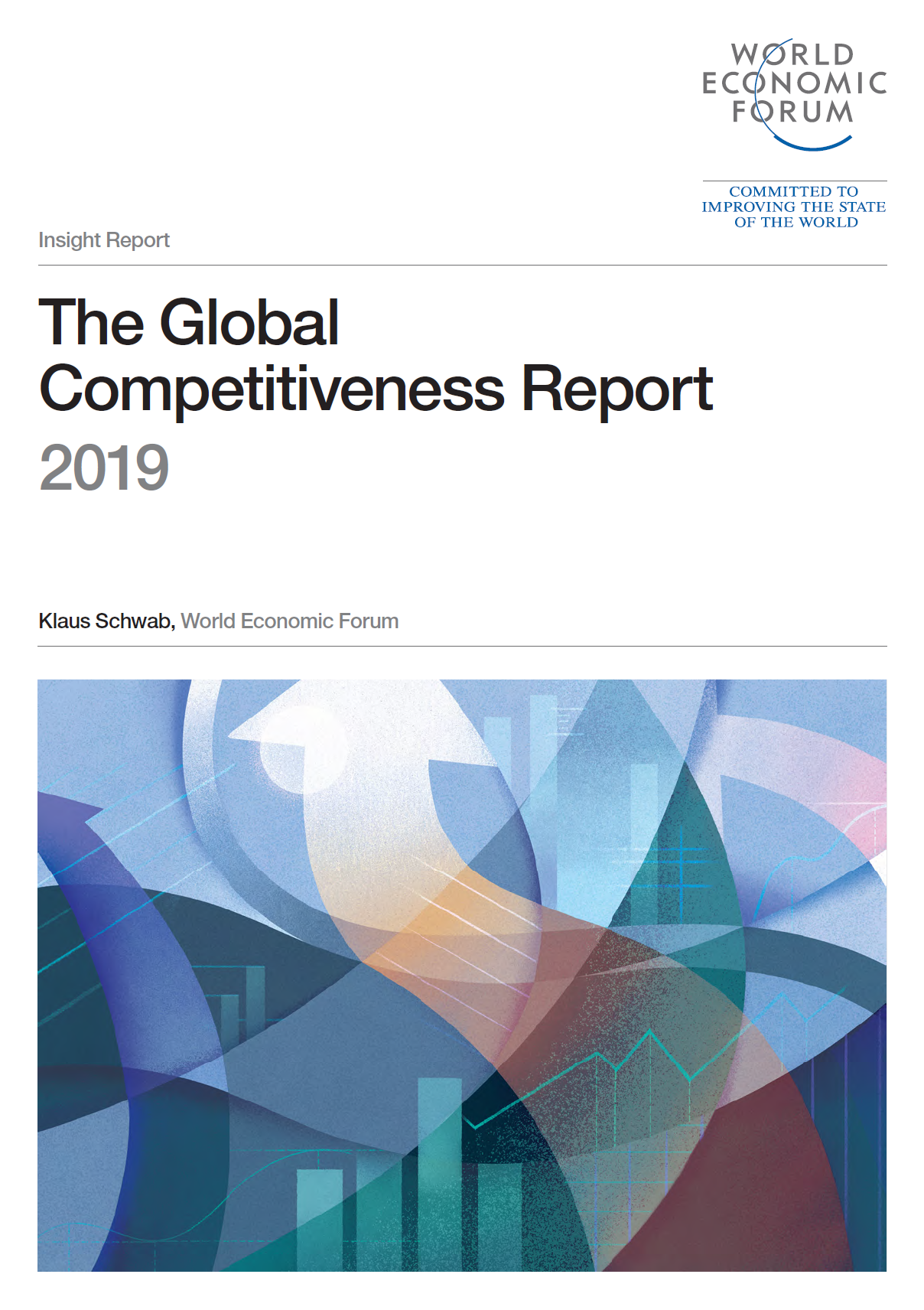
The Global Competitiveness Report 2019
Publication Year: 2019 / Sources: World Economic ForumGlobalization and the Fourth Industrial Revolution have created new opportunities but also disruption and polarization within and between economies and societies. In this context, the World Economic Forum introduced last year the new Global Competitiveness Index 4.0, a much-needed new economic compass, building on 40 years of experience of benchmarking the drivers of long-term competitiveness.
Download: English | Khmer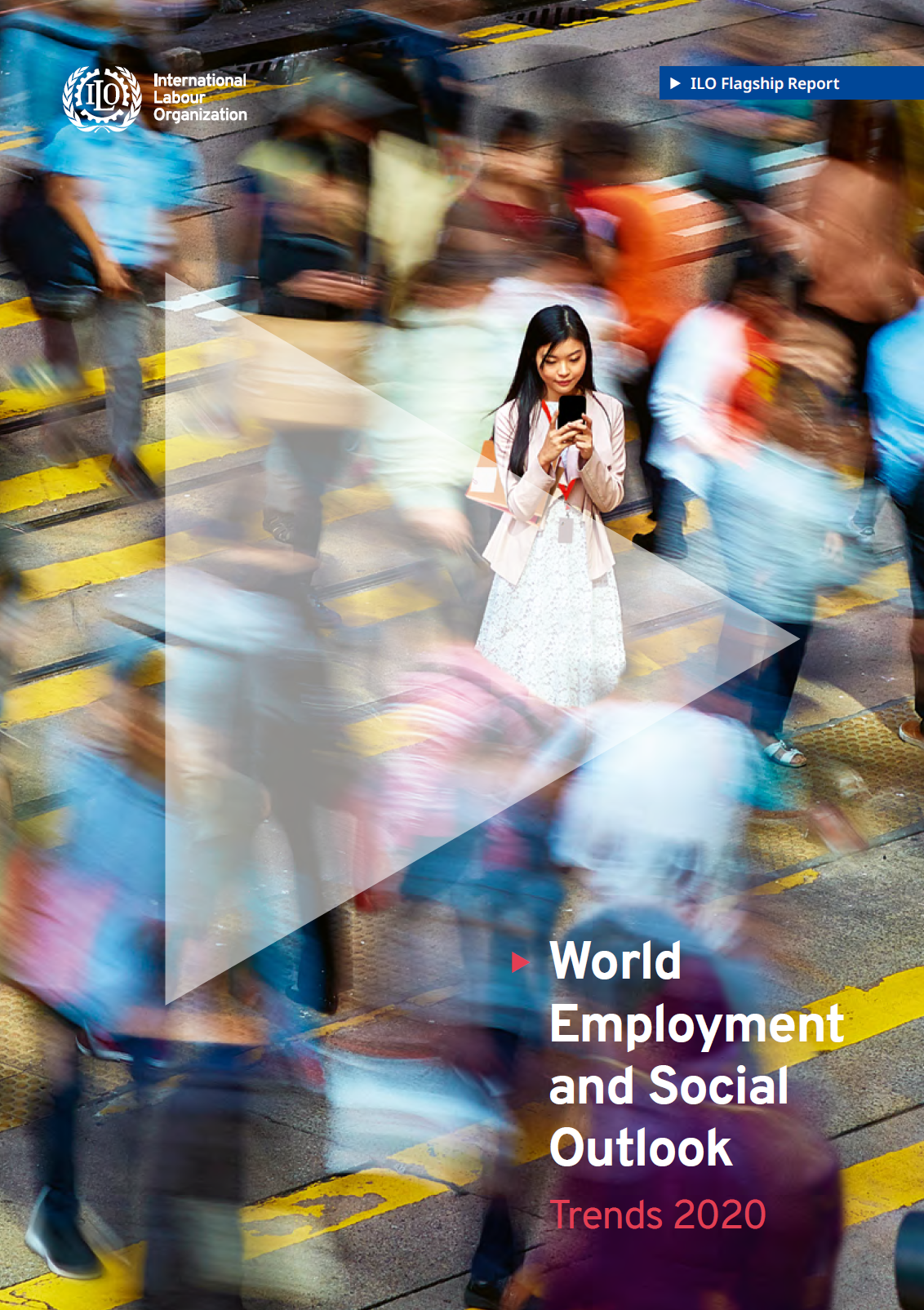
World Employment and Social Outlook: Trends 2020
Publication Year: 2020 / Sources: International Labour OrganizationThe enormous challenges in the world of work – including persistent inequalities and exclusion – make it more vital than ever to establish a clear picture of global employment and social trends. This requires critical reflection on the adequacy of our methods and concepts, with innovations where needed, to address today’s policy challenges. We need to question, for example, whether the unemployment rate provides the most reliable measure of labour market underperformance. We need to understand whether or not people of working age can realize their full potential in work.
Download: English | Khmer
Human Development Report 2019: Beyond income, beyond averages, beyond today: Inequalities in human development in the 21st century
Publication Year: 2019 / Sources: United Nations Development ProgrammeIn every country many people have little prospect for a better future. Lacking hope, purpose or dignity, they watch from society’s sidelines as they see others pull ahead to ever greater prosperity. Worldwide many have escaped extreme poverty, but even more have neither the opportunities nor the resources to control their lives. Far too often gender, ethnicity or parents’ wealth still determines a person’s place in society.
Download: English | Khmer
Human Development Report Cambodia 2019: Sustaining Natural Resources for All
Publication Year: 2019 / Sources: United Nations Development ProgrammeAs Cambodia continues its transition to a higher level of development, it faces a historic opportunity to manage its natural resources for the benefit of both people and the environment. Cambodia can mitigate mounting pressure on forests and other essential natural resources by diversifying patterns of access and use, while building the foundation for an economy that continues to be strong and fair, and, crucially, more sustainable.
Download: English | Khmer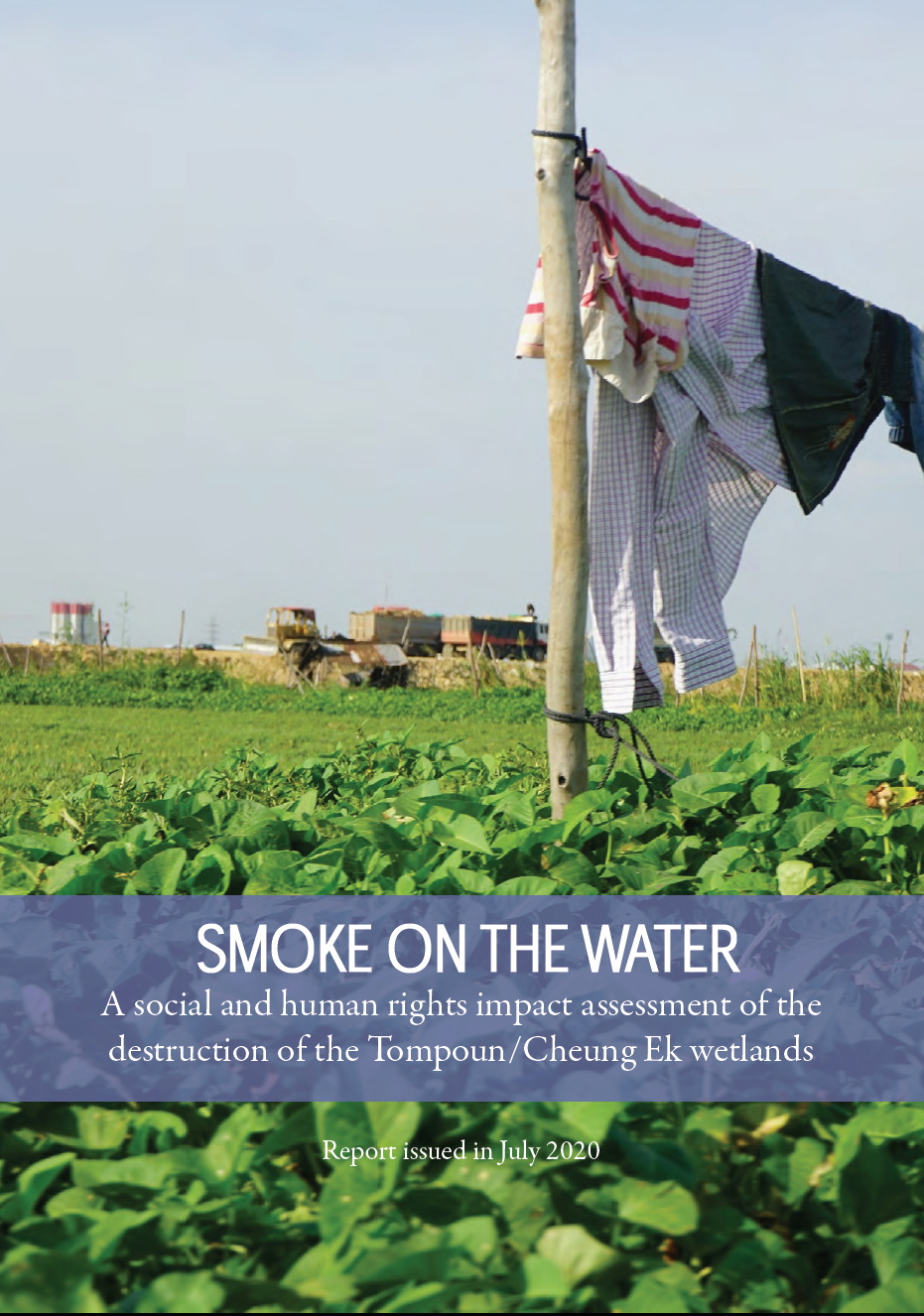
Smoke on the Water
Publication Year: 2020 / Sources: United Nations High Commissioner for Human Rights.Since 2004, the ING City project has been progressively destroying the Tompoun/Cheung Ek wetlands in Phnom Penh, threatening the livelihoods and homes of more than a thousand families, devastating the wetlands ecosystem, placing more than a million people at increased risk of flooding, worsening food insecurity, and polluting the Mekong and Bassac rivers with untreated sewage and harmful pollutants. The wetlands are a vital flood protection area for Phnom Penh, as well as the city’s only wastewater treatment system. ING City, and other proponents, are currently infilling the wetlands with sand and dirt to create land for real estate.
Download: English | Khmer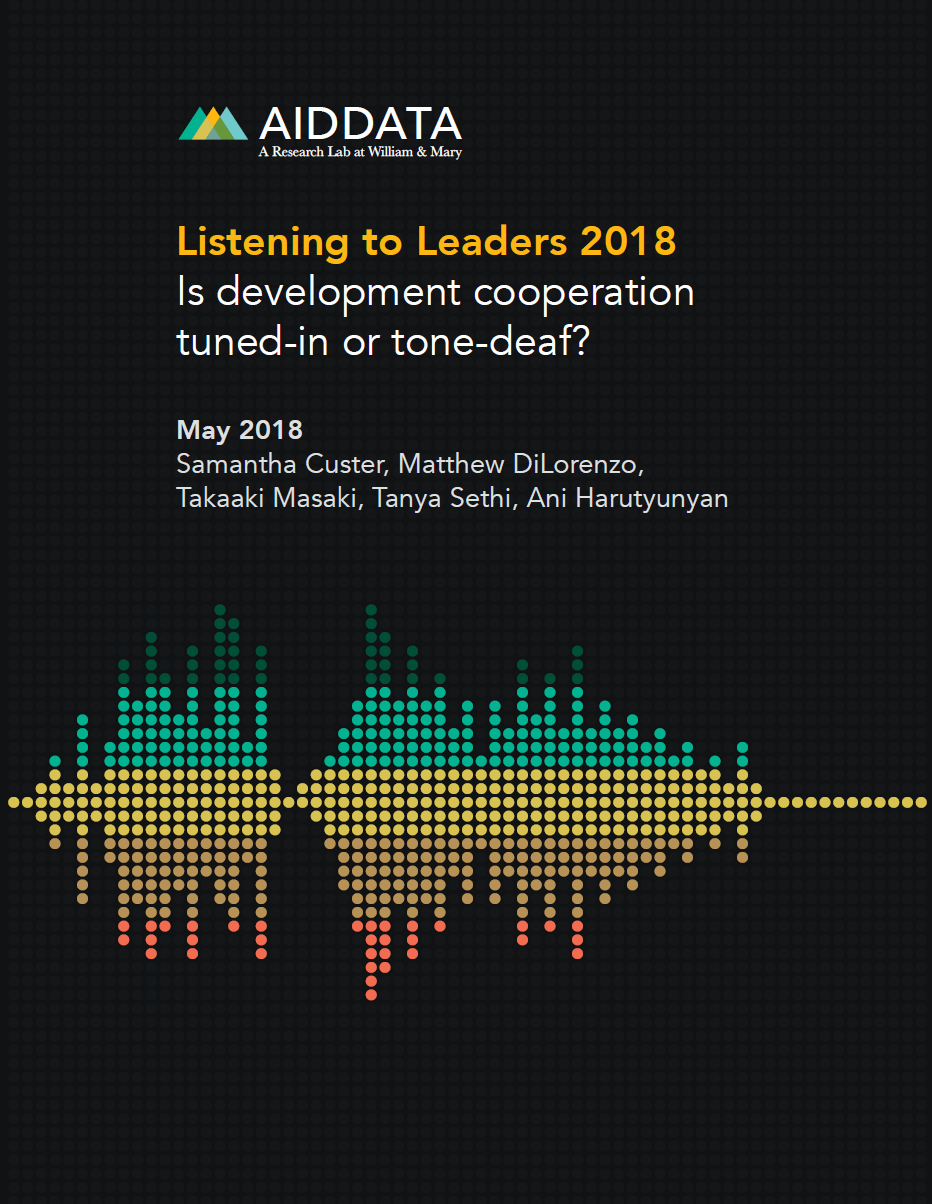
Listening to Leaders Survey 2018: Is development cooperation turn-in or tone-deaf?
Publication Year: 2018 / Sources: AidDataDo leaders, citizens and donors agree on the most important development challenges that need to be solved in the countries where they work? Whose support and what conditions make progress more or less likely? Which international donors do leaders consider to be their preferred development partners? To answer these questions, the Listening to Leaders 2018 report draws upon the unique experiences and perspectives of government officials, civil society leaders, private sector representatives, and development partners working on the ground in developing countries. Nearly 3,500 leaders working in 22 sectors of development policy in 126 low- and middle-income countries shared their insights via AidData’s 2017 Listening to Leaders Survey.
Download: English | Khmer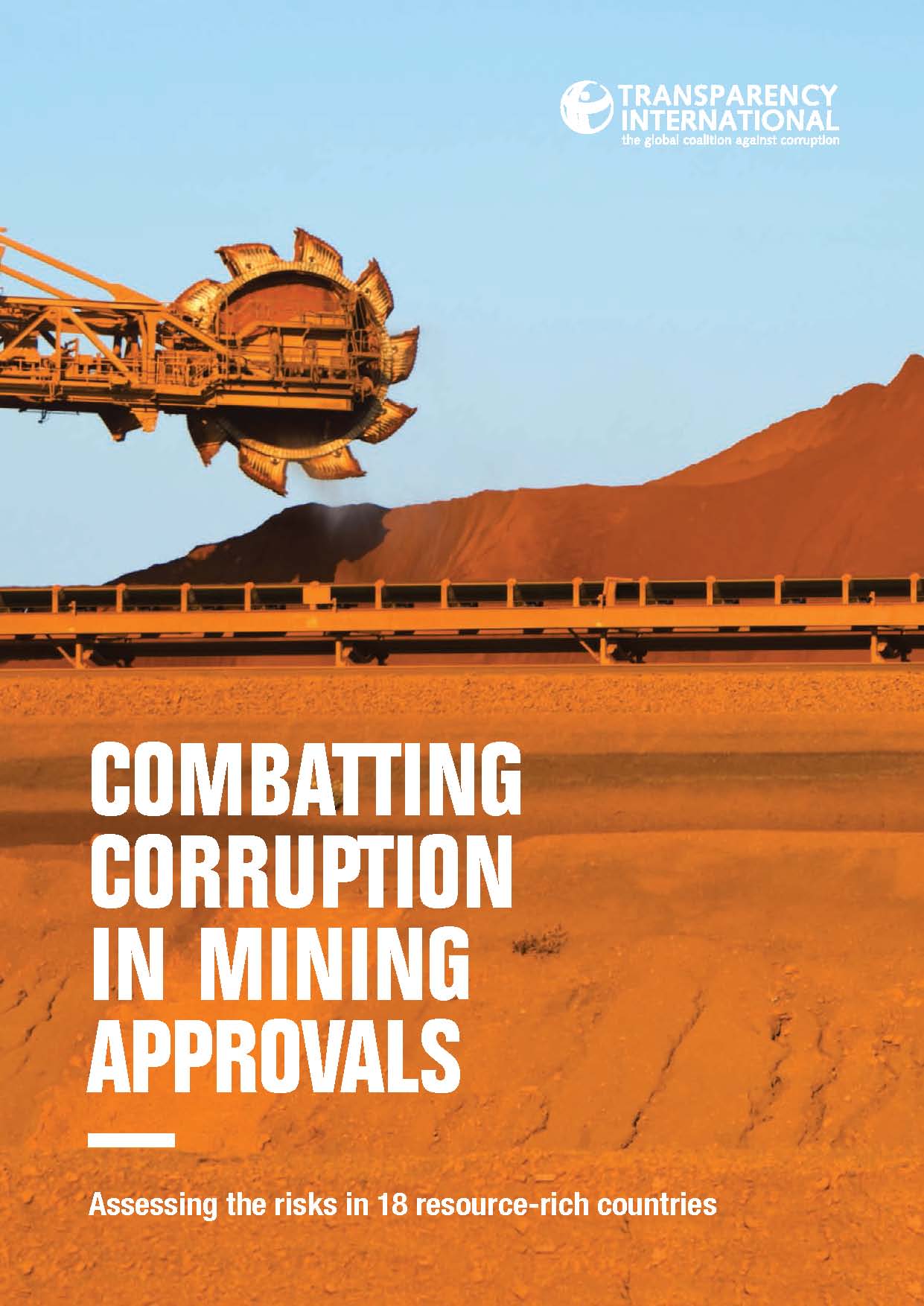
Combatting Corruption in Mining Approvals
Publication Year: 2017 / Sources: Transparency InternationalCombatting Corruption in Mining Approvals (Assessing the risks in 18 resource-rich countries)
Transparency International has assessed the risks that can lead to corruption in 18 resource-rich countries to identify the warning signals as early as possible. This report demonstrates where and how corruption can get a foothold in mining approvals processes before ground is even broken. It presents examples from a range of diverse countries and identifies important roles for government, the mining industry and civil society to identify, prevent and mitigate these risks.
Download: English | Khmer